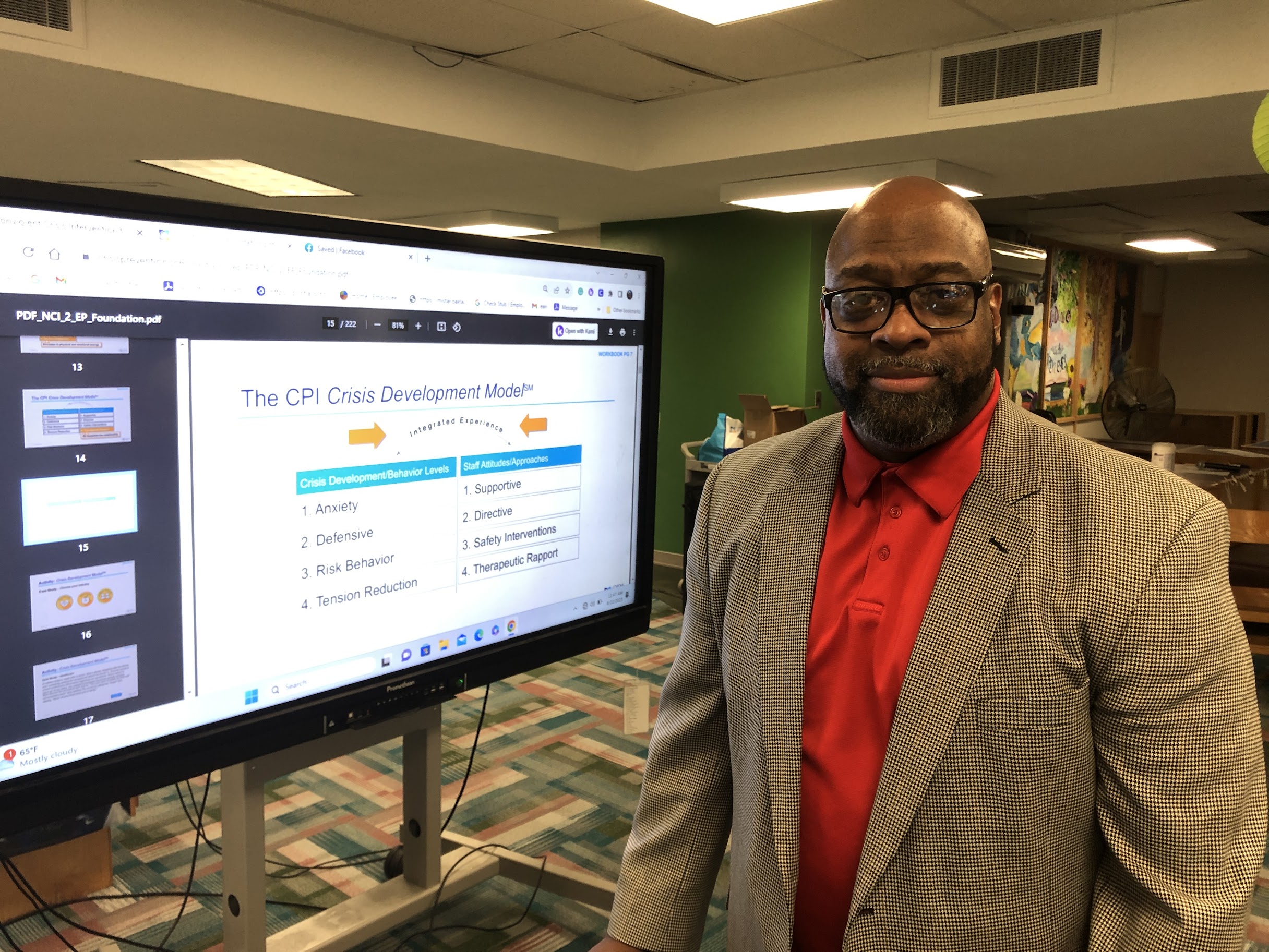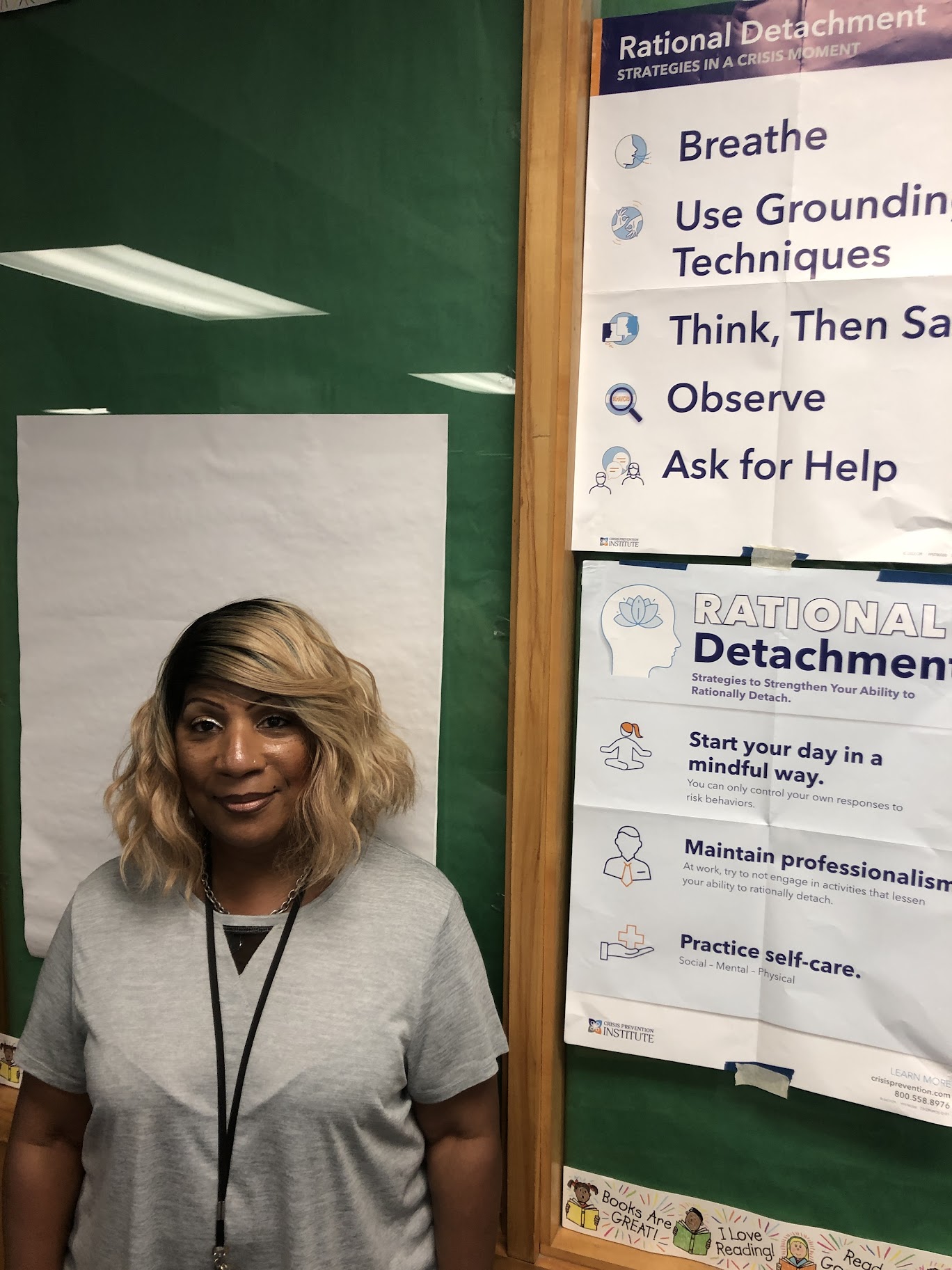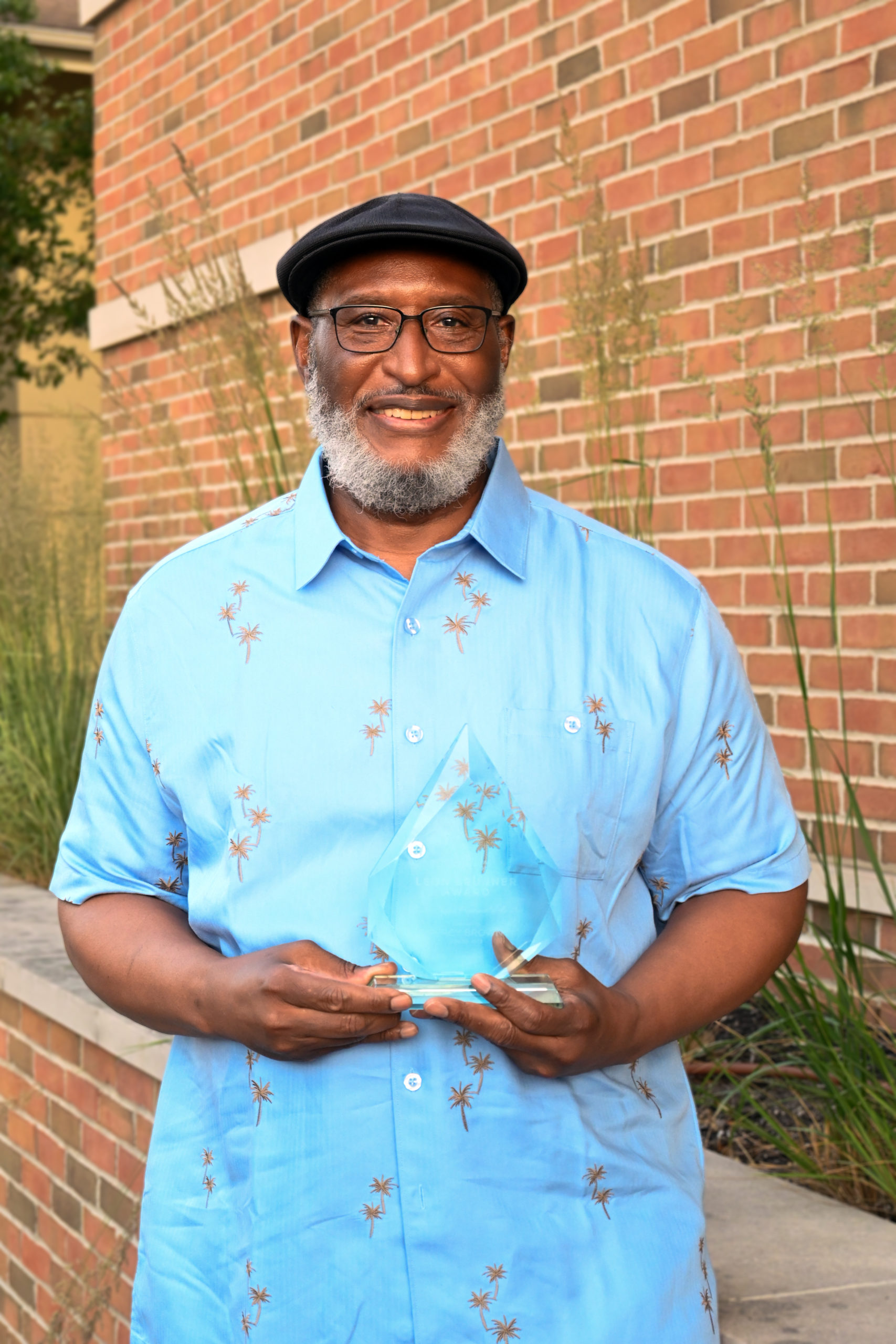Paraeducator trains others on how to de-escalate behaviors

The first time MEA member Fred McFadden attended Crisis Prevention Intervention (CPI) training 27 years ago, he was newly employed as a technician at an inpatient mental health facility in Auburn Hills, Havenwyck Hospital, and he didn’t believe the techniques would work.
Nearly three decades later McFadden still works nights at Havenwyck, plus he’s a paraeducator by day in his 26th year working with special needs children in Pontiac School District – and he’s a certified CPI trainer.
“The first year working at the hospital, I had reservations about doing CPI,” he told paraeducators in Oak Park where he led a back-to-school training at the start of this school year. “I thought, that don’t look like it’ll work. But you know what – the more I got to doing it, it does work.”
The CPI approach, developed by the Crisis Prevention Institute over the past 50 years, involves hands-off strategies for managing disruptive and assaultive behavior through de-escalation techniques.
McFadden took the group of about 40 new and veteran paras through the two-day training, which includes methods for safely performing holds in a crisis moment but primarily focuses on how to avoid physical restraint by steering potentially volatile situations out of deep waters.
McFadden stressed the need to build relationships with students so they learn to talk about problems instead of acting them out. You don’t always know what a child is dealing with outside of school – hunger, conflict, abuse – so don’t take behavior personally: “Behavior is communication,” he said.
The training goes through self-calming strategies the adult can use to avoid power struggles and manage his or her own behavior and attitudes. “Behavior influences behavior,” he said, and the goal is to reduce tension in a crisis and bring the child back to using the rational part of the brain.

If necessary, remove other students who can act as an audience and speak in a calm tone at an understandable rate, McFadden said. Offer choices with consequences.
“Don’t take it personal if they call you a name or insult your mother. Remove the audience and give it time, talk to them calmly and not threatening, and I promise you that child will calm all the way down. And then you can re-establish the relationship, figure out what’s going on.”
As president of his local paraeducators unit in Pontiac, McFadden also urged attendees to join the union for support and make a habit of documenting incidents for future reference.
Nichol Mullen, vice president of the paraeducators unit in Oak Park, said she set up the training because it was last offered before the pandemic. New people needed to learn the strategies, but it helps veterans to be reminded of how to handle situations that can be triggering, she said.
“Behaviors are growing in schools, and we definitely want to be able to protect our children and keep them safe, as well as to protect our members,” Mullen said.
Toni Brown, the longest-serving paraeducator in the district, said she has learned and used CPI tools often over her 40-year career working with students in both special and general education classrooms.
“CPI teaches me how to react and it gives me the tools to protect the student and protect myself,” Brown said. “I love CPI because it’s given me a wealth of wisdom to use in this endeavor of being a para.”
RELATED STORIES
IN FOCUS: SCHOOL HEALTH & SAFETY
Michigan launches 5-year pilot to stem targeted school violence



